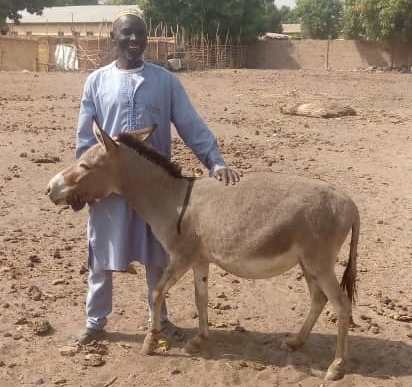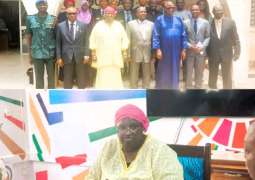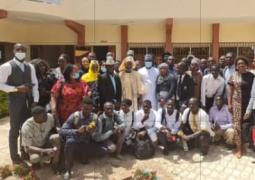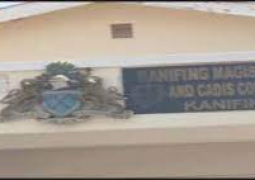
The ‘Nafa’ Programme component of The Gambia Social Safety Net Project (SSNP) (a US$ 31 million project) is jointly funded by the World Bank and Government of The Gambia. The ‘Nafa’ Program is designed to promote continuity and harmonisation with other programs, by expanding an existing package of cash transfers with SBCC managed by NaNA to new districts and regions.
The National Nutrition Agency (NaNA), Department of Social Welfare and Department of Community Development are the implementing partners of the ‘Nafa’ Program.The Gambia SSNP is being implemented in West Coast Region (WCR), Central River Region (CRR), North Bank Region (NBR) and Upper River Region (URR) targeting 15,606 extreme poor households. This equates to approximately 40 percent of the extreme poor households in The Gambia. For a start, it is being piloted in Foni Bintang, Nainija and Wuli West Districts.
The Project Development Objective (PDO) is to improve the coordination of social assistance activities, provide temporary social assistance support to rural households in the wake of COVID-19, and increase inclusion of the extreme poor in the ‘Nafa’ Programme.
The beneficiary selection was done using a Proxy-Means Test (PMT) which was followed by a community validation exercise in the poorest 20 districts of The Gambia. The regular revenue provided to extreme poor households is aimed at increasing both short-term consumption of essential goods, and enabling longer-term investments in human and productive capital.
Tailored SBCC provides information to beneficiaries and non-beneficiaries to encourage investments that can bolster human capital especially maternal and child health and nutrition, adolescence education and family planning; parenting and prevention of gender-based violence; and productive capital especially savings, entrepreneurship and agriculture to break the inter-generational cycle of poverty. In the three piloted districts, a total of two thousand, seven hundred and seventy (2,770) beneficiary households each received D3000 every two months during the three rounds of payment.
Mr. Darboe, a farmer said he bought a draft animal (donkey) after receiving three cycles of the ‘Nafa’ Cash Transfer as a means of building their household resilience especially during the farming season. The donkey he said can be used to draw farming equipment as well as transfer goods, which can generate income for the household.
“Our women used to suffer at the farm during the rainy season and after receiving three cycles of the ‘Nafa’ Cash Transfer, I consulted them and they advised me to buy a donkey,” he explained. He added that he also bought some basic commodities for his family, saying: “the ‘Nafa’ Programme has lifted our status and will equally make life easy for us during the upcoming rainy seasons.” Mr Darboe continued to explain that he plans to also buy small ruminants when he receives the other cycles of the ‘Nafa’ Cash Transfer.
Speaking to the media, the Social and Behavioural Change Communication (SBCC) Programme Manager at the National Nutrition Agency (NaNA), Mr Ousman Dem, expressed his satisfaction with the investments undertaken so far by most of the beneficiary households who were visited.
He further expressed the need to intensify the SBCC activities at community levels, thus, to enhance the process of behavioral change, since the cash provided is only meant to build the resilience of beneficiary.




